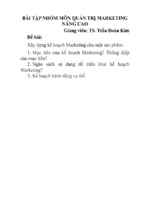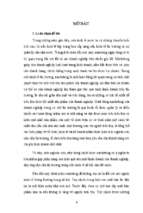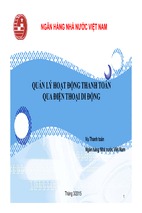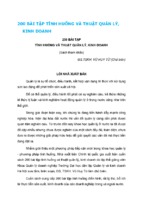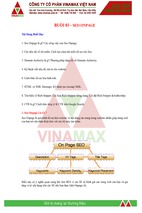Work, Female Empowerment and
Economic Development
Accumulation of assets to enable the diversification of activities has been established as crucial in helping the rural poor escape poverty. The empowerment of
women has been identified as a way to overcome inefficiencies in the allocation of
resources within the family and so improve agrarian households’ productivity.
However, achieving diversification is not necessarily empowering for women and
some initiatives may worsen their position.
This book uses the information collected in original household surveys
conducted in rural areas in four countries to investigate the links between women’s
position in the household, diversification strategies, labour market participation
and poverty reduction. The book centres on country-specific chapters that provide
an in-depth focus on an issue of relevance to the location and that tease out the
interplay between female empowerment and development in that context. In
particular, the chapters examine:
•
•
•
•
Landlessness in Ethiopia
Feminization of the agricultural labour market in Andhra Pradesh, India
Female labour supply and women’s power within the household in Uganda
Disadvantages faced by female-headed households in Zimbabwe
The analysis calls for caution in assuming that labour market expansion necessarily acts to empower women and emphasizes the role female access to assets can
have in facilitating diversification and escaping poverty. It will appeal to all those
studying development economics, with particular interest in areas such as diversification, poverty and female empowerment.
Sara Horrell is a Senior Lecturer in Economics at the University of Cambridge
and a Fellow of New Hall, Cambridge.
Hazel Johnson is Professor of Development Policy and Practice at The Open
University.
Paul Mosley is Professor of Economics at the University of Sheffield.
Routledge Studies in Development Economics
1
Economic Development in the
Middle East
Rodney Wilson
2
Monetary and Financial Policies
in Developing Countries
Growth and stabilization
Akhtar Hossain and
Anis Chowdhury
3
8 Public Sector Pay and
Adjustment
Lessons from five countries
Edited by Christopher Colclough
9 Europe and Economic Reform in
Africa
Structural adjustment and
economic diplomacy
Obed O. Mailafia
New Directions in Development
Economics
Growth, environmental concerns
and government in the 1990s
Edited by Mats Lundahl and
Benno J. Ndulu
10 Post-apartheid Southern Africa
Economic challenges and policies
for the future
Edited by Lennart Petersson
4
Financial Liberalization and
Investment
Kanhaya L. Gupta and
Robert Lensink
11 Financial Integration and
Development
Liberalization and reform in subSaharan Africa
Ernest Aryeetey and
Machiko Nissanke
5
Liberalization in the Developing
World
Institutional and economic
changes in Latin America, Africa
and Asia
Edited by Alex E. Fernández
Jilberto and André Mommen
6
7
Financial Development and
Economic Growth
Theory and experiences from
developing countries
Edited by Niels Hermes and
Robert Lensink
The South African Economy
Macroeconomic prospects for the
medium term
Finn Tarp and Peter Brixen
12 Regionalization and
Globalization in the Modern
World Economy
Perspectives on the Third World
and transitional economies
Edited by Alex E. Fernández
Jilberto and André Mommen
13 The African Economy
Policy, institutions and the future
Steve Kayizzi-Mugerwa
14 Recovery from Armed Conflict
in Developing Countries
Edited by Geoff Harris
15 Small Enterprises and Economic
Development
The dynamics of micro and small
enterprises
Carl Liedholm and
Donald C. Mead
16 The World Bank
New agendas in a changing world
Michelle Miller-Adams
17 Development Policy in the
Twenty-First Century
Beyond the post-Washington
consensus
Edited by Ben Fine, Costas
Lapavitsas and Jonathan Pincus
18 State-Owned Enterprises in the
Middle East and North Africa
Privatization, performance and
reform
Edited by Merih Celasun
19 Finance and Competitiveness in
Developing Countries
Edited by José María Fanelli and
Rohinton Medhora
20 Contemporary Issues in
Development Economics
Edited by B.N. Ghosh
21 Mexico Beyond NAFTA
Edited by Martín Puchet Anyul and
Lionello F. Punzo
22 Economies in Transition
A guide to China, Cuba, Mongolia,
North Korea and Vietnam at the
turn of the twenty-first century
Ian Jeffries
23 Population, Economic Growth
and Agriculture in Less
Developed Countries
Nadia Cuffaro
24 From Crisis to Growth in
Africa?
Edited by Mats Lundal
25 The Macroeconomics of
Monetary Union
An analysis of the CFA franc zone
David Fielding
26 Endogenous Development
Networking, innovation,
institutions and cities
Antonio Vasquez-Barquero
27 Labour Relations in
Development
Edited by Alex E. Fernández
Jilberto and Marieke Riethof
28 The Crisis of Rural Poverty and
Hunger
An essay on the complementarity
between market and governmentled land reform for its resolution
M. Riad El-Ghonemy
28 Globalization, Marginalization
and Development
Edited by S. Mansoob Murshed
29 Programme Aid and
Development
Beyond conditionality
Howard White and Geske Dijkstra
30 Competitiveness Strategy in
Developing Countries
A manual for policy analysis
Edited by Ganeshan Wignaraja
31 The African Manufacturing
Firm
An analysis based on firm surveys
in sub-Saharan Africa
Dipak Mazumdar and
Ata Mazaheri
32 Trade Policy, Growth and
Poverty in Asian Developing
Countries
Edited by Kishor Sharma
40 The Economics of Palestine
Economic policy and institutional
reform for a viable Palestine state
Edited by David Cobham and
Nu’man Kanafani
33 International Competitiveness,
Investment and Finance
A case study of India
Edited by A. Ganesh Kumar,
Kunal Sen and Rajendra R. Vaidya
41 Development Dilemmas
The methods and political ethics of
growth policy
Melvin Ayogu and Don Ross
34 The Pattern of Aid Giving
The impact of good governance on
development assistance
Eric Neumayer
42 Rural Livelihoods and Poverty
Reduction Policies
Edited by Frank Ellis and
H. Ade Freeman
35 New International Poverty
Reduction Strategies
Edited by Jean-Pierre Cling,
Mireille Razafindrakoto and
François Roubaud
43 Beyond Market-Driven
Development
Drawing on the experience of Asia
and Latin America
Edited by Makoto Noguchi and
Costas Lapavitsas
36 Targeting Development
Critical perspectives on the
Millennium Development Goals
Edited by Richard Black and
Howard White
37 Essays on Balance of Payments
Constrained Growth
Theory and evidence
Edited by J.S.L. McCombie and
A.P. Thirlwall
38 The Private Sector After
Communism
New entrepreneurial firms in
transition economies
Jan Winiecki, Vladimir Benacek
and Mihaly Laki
39 Information Technology and
Development
A new paradigm for delivering the
internet to rural areas in
developing countries
Jeffrey James
44 The Political Economy of
Reform Failure
Edited by Mats Lundahl and
Michael L. Wyzan
45 Overcoming Inequality in Latin
America
Issues and challenges for the
twenty-first century
Edited by Ricardo Gottschalk and
Patricia Justino
46 Trade, Growth and Inequality in
the Era of Globalization
Edited by Kishor Sharma and
Oliver Morrissey
47 Microfinance
Perils and prospects
Edited by Jude L. Fernando
48 The IMF, World Bank and
Policy Reform
Edited by Alberto Paloni and
Maurizio Zanardi
49 Managing Development
Globalization, economic
restructuring and social policy
Edited by Junji Nakagawa
58 Membership Based
Organizations of the Poor
Edited by Martha Chen, Renana
Jhabvala, Ravi Kanbur and Carol
Richards
50 Who Gains from Free Trade?
Export-led growth, inequality and
poverty in Latin America
Edited by Rob Vos, Enrique
Ganuza, Samuel Morley, and
Sherman Robinson
59 The Politics of Aid Selectivity
Good governance criteria in World
Bank, U.S. and Dutch
development assistance
Wil Hout
51 Evolution of Markets and
Institutions
A study of an emerging economy
Murali Patibandla
60 Economic Development,
Education and Transnational
Corporations
Mark Hanson
52 The New Famines
Why famines exist in an era of
globalization
Edited by Stephen Devereux
61 Achieving Economic
Development in the Era of
Globalization
Shalendra Sharma
53 Development Ethics at work
Explorations – 1960–2002
Denis Goulet
62 Sustainable Development and
Free Trade
Shawkat Alam
54 Law Reform in Developing and
Transitional States
Edited by Tim Lindsey
63 The Impact of International
Debt Relief
Geske Dijkstra
55 The Assymetries of
Globalization
Edited by Pan A. Yotopoulos and
Donato Romano
64 Europe’s Troubled Region
Economic development,
institutional reform and social
welfare in the Western Balkans
William Bartlett
56 Ideas, Policies and Economic
Development in the Americas
Edited by Esteban PérezCaldentey and Matias Vernengo
57 European Union Trade Politics
and Development
Everything but arms unravelled
Edited by Gerrit Faber and Jan
Orbie
65 Work, Female Empowerment
and Economic Development
Sara Horrell, Hazel Johnson and
Paul Mosley, with
Supriya Garikipati, June Rock
and Arjan Verschoor
Work, Female Empowerment
and Economic Development
Sara Horrell, Hazel Johnson
and Paul Mosley, with
Supriya Garikipati, June Rock
and Arjan Verschoor
First published 2008 by Routledge
2 Park Square, Milton Park, Abingdon, Oxon OX14 4RN
Simultaneously published in the USA and Canada
by Routledge
270 Madison Ave, New York, NY 10016
This edition published in the Taylor & Francis e-Library, 2008.
“To purchase your own copy of this or any of Taylor & Francis or Routledge’s
collection of thousands of eBooks please go to www.eBookstore.tandf.co.uk.”
Routledge is an imprint of the Taylor & Francis Group, an informa business
© 2008 Sara Horrell, Hazel Johnson and Paul Mosley
All rights reserved. No part of this book may be reprinted or reproduced or
utilized in any form or by any electronic, mechanical, or other means, now
known or hereafter invented, including photocopying and recording, or in
any information storage or retrieval system, without permission in writing
from the publishers.
British Library Cataloguing in Publication Data
A catalogue record for this book is available from the British Library
Library of Congress Cataloging in Publication Data
Horrell, Sara.
Work, female empowerment and economic development / Sara Horrell,
Hazel Johnson and Paul Mosley.
p. cm.
Includes bibliographical references and index.
1. Rural women—Employment—Developing countries. 2. Sexual
division of labor—Developing countries. 3. Sex discrimination in
employment—Developing countries. 4. Poverty—Developing
countries. I. Johnson, Hazel. II. Mosley, Paul. III. Title.
HD6223.H67 2008
331.409172'4–dc22
2007032797
ISBN 0-203-93126-2 Master e-book ISBN
ISBN13: 978-0-415-43757-8 (hbk)
ISBN13: 978-0-203-93126-4 (ebk)
To Veeraj, Renata and William,
all born during the implementation of this project
Contents
List of illustrations
About the contributors
Acknowledgements
Glossary
1
Introduction
xii
xv
xvi
xvii
1
SARA HORRELL AND PAUL MOSLEY
2
The surveys: countries, methodology and poverty classifications
11
HAZEL JOHNSON AND SARA HORRELL
3
Time use and labour supply in rural households
32
SARA HORRELL AND PAUL MOSLEY
4
Landlessness, poverty and labour markets in south-western Ethiopia
82
SARA HORRELL AND JUNE ROCK
5
Redefining gender roles and reworking gender relations: female
agricultural labour in dry regions of Andhra Pradesh
102
SUPRIYA GARIKIPATI
6
Gender relations and female labour supply in East Uganda
141
ARJAN VERSCHOOR
7
Female-headed households in Zimbabwe: a different type of
poverty needing a different set of solutions?
171
SARA HORRELL
8
Policies and poverty alleviation
198
PAUL MOSLEY AND SARA HORRELL
Bibliography
Index
219
229
Illustrations
Figures
3.1
5.1
7.1
8.1
The Nash equilibrium and male and female fallback positions
65
Average percentage of non-domestic work hours spent on waged and
self-employed work among male and female labourers
117
Income per capita, cumulative percentage
179
Two labour demand patterns and their impact on income stability:
Uganda sample
211
Boxes
2.1
2.2
3.1
3.2
5.1
5.2
Poverty profile construction: income
Poverty lines
Indicators of diversification
Indices reflecting women’s position in the household: Zimbabwe
Stated preferences for female labourers by MF and BF employers
Indices reflecting women’s position in the household
28
30
43
70
114
134
Tables
2.1
2.2
2.3
2.4
2.5
3.1
3.2
3.3
3.4
3.5
3.6
Survey and location details
Summary of re-survey details
Characteristics of the research locations in Uganda
Key characteristics of the surveyed households in each region
Poverty profiles
Household structure and time spent in work activities
– male-headed households
Detailed time use for survey respondents: men and women where
the man works on their own farm
Household time use where the man’s main activity is waged work
Contributions to and from the household
Poverty profiles and diversification
Gendered divisions of labour
18
19
22
24
27
34
36
38
41
44
45
Illustrations xiii
3.7
3.8
3.9
3.10
3.11
3.12
3.13
3.14
3.15
3.16
3.17
3.18
3.19
3.20
4.1
4.2
4.3
4.4
4.5
4.6
4.7
4.8
4.9
4.10
4.11
5.1
5.2
5.3
5.4
Determinants of household hours spent in farming own land
Time budget time uses: male partners whose main activity is
agriculture or other work
Time budget time use: female partner where main activity of man is
agricultural work on own farm in African countries
Daily time spent in various activities and income and asset position
according to whether the household earns a high or low effective
wage from agriculture: Zimbabwe
Time budget time use: male partner’s work in India where his main
activity is waged work
Time budget time use: female partner’s time use where main activity
of man is waged work in India
Time use and labour supply – summary table
External factors expected to enhance women’s bargaining position:
Zimbabwe and Uganda
Intra-household processes in male-headed households: sales
and processes
Regression analysis of female labour supply, embodying bargaining
parameters: Zimbabwe
Average time spent at various activities by whether the woman
works for wages: Zimbabwe
Regression analysis of female labour supply, embodying bargaining
parameters: Uganda
Regression analysis of expenditure patterns, embodying bargaining
parameters: Zimbabwe
Regression analysis of male and female maize yields in Uganda
Income and asset position of landless households
Income and asset position of landed and landless households
Activities of husband and wife
Average time spent at main activity by household members
Labour market participation in past year
Income and asset situation of households with land by participation
in the labour market
Income and days worked
Vulnerability
Income vulnerability, 2001/2 compared with 1997
Time use of men and women, from time budget data for typical day
Domestic divisions of labour and responsibilities
Labour class ranks
Labour class of men and women and their landholdings
Average number of male and female paid work days required for
cultivation of one acre of paddy, groundnut, jowar and castor crops
New technology and male and female paid work days in paddy
cultivation
52
56
57
58
59
60
62
68
69
72
74
75
76
77
84
85
88
89
90
91
92
93
94
96
97
107
109
111
112
xiv Illustrations
5.5
5.6
5.7
5.8
5.9
5.10
5.11
5.12
5.13
6.1
6.2
6.3
6.4
6.5
6.6
6.7
6.8
6.9
6.10
6.11
6.12
7.1
7.2
7.3
7.4
7.5
7.6
7.7
7.8
7.9
8.1
8.2
8.3
Average non-leisure hours spent on different activities in one day
among male and female labour classes
Seasonal migration and income among male and female labourers
Expenditure from migration incomes by male and female labourers
Male and female actual wage and statutory minimum wage
Incidence of tied harvest and labour arrangements among labour
classes
Intra-household processes in male-headed, labour class households
Average spending pattern among men and women labourers from
male-headed households by source of income
Average ownership of household productive assets among men and
women labourers in male-headed households
Mean values of indices relating to female power and control among assetowning and assetless women from male-headed, labour class households
Crop-selling patterns in male-headed households
Livestock-selling patterns in male-headed households
Crop-selling patterns and livestock-selling patterns
Crop-selling patterns and female responsibility for major decisions
Manifestation of female power: realizing time preferences
Manifestation of female power: realizing spending preferences
Correlates of female power
Sources of female power
Female power, labour supply, spending discretion and time allocation
Historical gender division of tasks
Determinants of female time allocation
Labour supply and female power: realizing time preferences
Household structure and income
Poverty profile and average component scores by gender of head of
household
Land holding by region and gender of head of household
Time use in female-headed and male-headed households
Children’s work in rural Zimbabwean households
Intraihousehold processes: expenditure comparisons from three
sources of money via three processes.
Agricultural productivity, input usage and costs by gender of
household head
Regression analyses of agricultural productivity
Regression analysis of prices paid and received
Diversification for the less-poor household
Labour demand equations
Demand for male and female labour
116
119
120
122
123
128
130
132
135
147
148
149
149
150
150
152
155
158
160
162
165
176
178
180
181
183
184
187
190
192
200
208
209
Contributors
Supriya Garikipati is Lecturer in Applied Economics in the School of Management at the University of Liverpool. Her research is in development economics,
particularly in the Indian sub-continent. It includes displacement by the Sardar
Sarovar dam in Western India and the impact of microfinance and microinsurance schemes in Andhra Pradesh.
Sara Horrell is Senior Lecturer in Economics at the University of Cambridge and
a Fellow of New Hall, Cambridge. Her research has focused on households,
labour supply and consumption in contemporary and historical contexts and she
has published extensively in these areas.
Hazel Johnson is Professor of Development Policy and Practice at The Open
University. She has been involved in projects on food security, social learning
in development interventions, and education for development policy and
management, and has published in these areas.
Paul Mosley is Professor of Economics at the University of Sheffield. He has
worked extensively in the area of development, political economy and
economic history, with an emphasis on Africa.
June Rock is Research Officer at the University of Bradford. She has conducted
fieldwork in Ethiopia, Uganda and Zimbabwe and has an interest in agricultural
productivity and microfinance in poor rural households.
Arjan Verschoor is Lecturer in Economics at the School of Development Studies
and an economist in the Overseas Development Group at the University of East
Anglia. His research interests include intra-household economics, aid effectiveness, the relationship between economic growth and poverty reduction, social
capital and poor farmers’ decision-making under uncertainty. He has done
fieldwork in Uganda.
Acknowledgements
This research was primarily based on a project financed under the UK Department
for International Development’s Pro-Poor Growth Programme that was aimed at
understanding the type of economic growth that can help the poor escape poverty
(project number R7615). The Newton Trust financed the research assistance and the
full-scale re-survey conducted in India (award number INT 2.05 (d)). We gratefully
acknowledge these sources of finance. However, the views expressed in this book
are those of the authors alone. There are many people who contributed to the project.
We would like to thank all those who participated in the surveys; without their time
and the insights they allowed us into their lives this work would not have been
possible. We are also grateful to those who conducted the fieldwork. In particular,
we thank Munhamo Chisvo and JIMAT Development Consultants in Harare for
help with developing the questionnaire, providing background information and
conducting the fieldwork in Zimbabwe; Joshua Balungira, Sarah Khanakwa and
Richard Nalela for overseeing the interviewing and data entry in Uganda; Tegegne
Teka and Abrar Suleiman in Ethiopia; and the field research team, Chandrasekhar,
Lakshmama, Narsimhlu, Lakshmi, Padma, Ratish and Sridevi, in Andhra Pradesh.
We also gratefully acknowledge the information and support provided by P. Achari
of Sanghameshwara Grameen Bank, K. Raju of VELUGU and Andhra Pradesh
District Poverty Initiatives Project, C. S. Reddy of Mahila Abhivruddhi Society
Andhra Pradesh, Y. Thorat of NABARD and V. Mahajan of BASIX. We thank
Jesimen Chipika for detailed and thoughtful comments on an earlier version of
this book. Sara Horrell and Pramila Krishnan, ‘Poverty and productivity in
female-headed households in Zimbabwe’ was published in the Journal of Development Studies, 43 (8) in November 2007 (website: www.informaworld.com/
smpp/title~content=t713395137~db=all) and the present chapter 7 rests substantially on that work. We thank Pramila Krishnan for her co-authorship of the
article and Taylor & Francis Group for permission to reproduce sections of that
work. Hazel Johnson was instrumental in orchestrating the Zimbabwe survey
and we thank her for helpful comments on various versions of this chapter.
Glossary
CGE
GDP
HDI
HIPC
HYV
IMF
MDG
NGO
PA
SHG
Computable General Equilibrium
Gross Domestic Product
Human Development Index
Highly-Indebted Poor Countries
High Yield Varieties
International Monetary Fund
Millennium Development Goals
Non-Government Organization
Peasant Association
Self-Help Group
1
Introduction
Sara Horrell and Paul Mosley
The diversification of economic activity and labour market development have both
been identified as possible strategies to reduce the vulnerability of the poor and
enable the ascent out of poverty. Whether such policies are necessarily empowering for women has been much debated but less well documented. In this book we
adopt a comparative case study approach using original survey material for three
African countries and a state in India to investigate these links.
Much recent work has emphasized the role of diversification in achieving
poverty reduction (see, for example, Carney 1988; Ellis 1998; Ellis 2001; Ellis and
Freeman 2004). This literature has highlighted how local labour market employment options, urban migration of some household members, agriculture-related
small enterprises, increased agricultural productivity and non-farm selfemployment activities may all present opportunities for income generation. These
are not mutually exclusive options even for an individual and the multi-person
household may devote time to a number or indeed all, of these activities. Diversification can result in cash-generation that is used to fund the accumulation of assets
and so secure the household’s future income stream and enable it to climb out of
poverty. However, multiple equilibria exist and initial ownership of, and access to,
assets determine the options available. Assets are broadly defined, ranging from
the physical, human, social and natural to the financial. Access to these assets is
mediated through institutions, social relations and organizations. Those with few
assets, who suffer cash liquidity constraints or social exclusion and who are
located in geographically less favoured areas are restricted to low-return diversification as a way of minimizing risk and protecting crucial productive assets (Barrett
et al. 2006a). Furthermore, Dercon and Krishnan (1996) demonstrate that being
excluded from certain activities by binding constraints can limit diversification
and be more influential than the desire for risk reduction. Specifically, they find
that ownership of potentially lucrative cattle in Tanzania and Ethiopia is
constrained by lack of assets and access to finance. Similar constraints may also
affect entry into high-return or low-return off-farm activities. Enabling highreturn, high-risk diversification requires improved asset bases.
Acknowledgement of the central role of diversification in assuring rural livelihoods has shifted the focus from income or consumption poverty to asset poverty
and thus from short-term headcount poverty to persistent or chronic poverty (see,
- Xem thêm -

